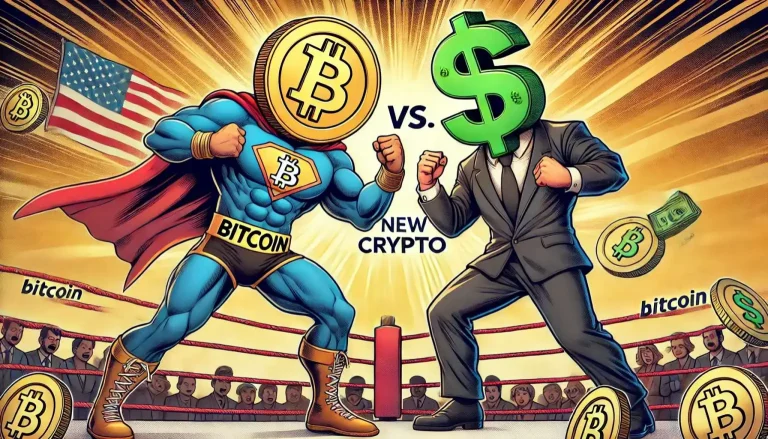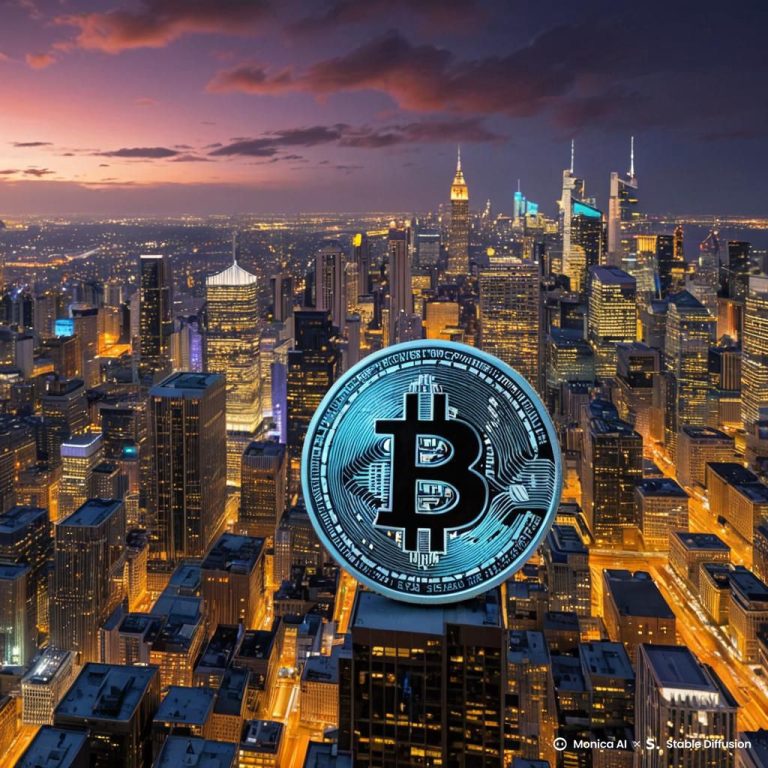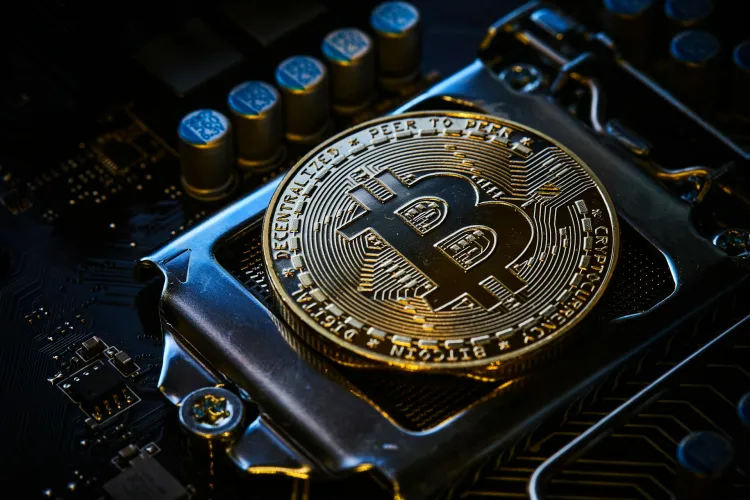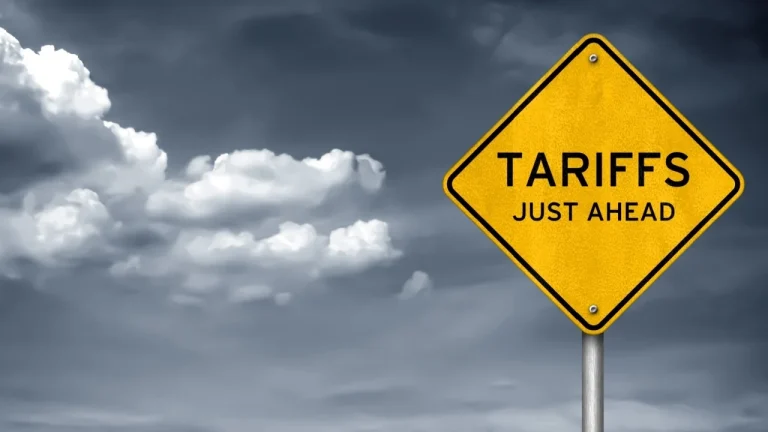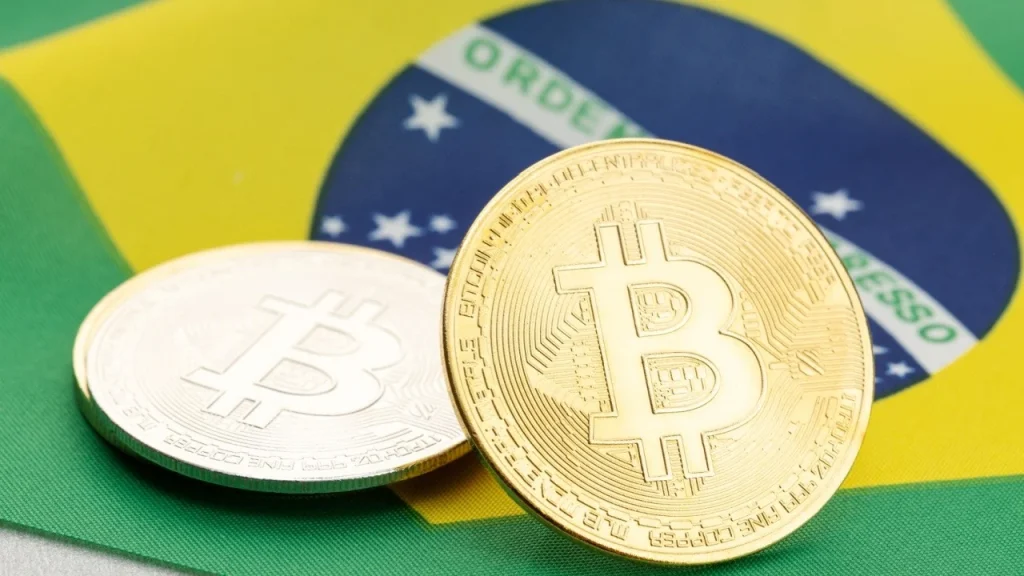
Bitcoin, the world’s first decentralized cryptocurrency, has been gaining increasing attention as a potential reserve asset for both individuals and institutions. This trend has now found its way to Brazil, where both private companies and government officials are considering the inclusion of Bitcoin in the country’s reserve strategy. With global economic uncertainties and the volatility of fiat currencies, Bitcoin is being viewed by many as a viable hedge against inflation and geopolitical risks. As Brazil leads the charge in Latin America, the question arises: Could Bitcoin become a staple of Brazil’s financial reserves in the future?
Bitcoin as a Reserve Asset: A Growing Global Trend
Over the past few years, Bitcoin has gained popularity not only as an investment asset but also as a potential store of value. Many institutions and even entire countries are exploring ways to incorporate Bitcoin into their financial systems, with the most notable example being El Salvador’s decision to make Bitcoin legal tender in 2021.
But El Salvador is not alone. Countries like Bhutan, Paraguay, and even Russia are considering or have already integrated Bitcoin into their national reserves, aiming to diversify their assets and reduce reliance on traditional fiat currencies. As Bitcoin’s market capitalization grows, its appeal as an alternative to traditional assets like gold or the US dollar is becoming more apparent. Bitcoin’s decentralized nature, combined with its relative scarcity (only 21 million coins can ever be mined), makes it a compelling option for diversifying reserves and hedging against inflation.
Brazil, as the largest economy in South America, is closely watching these developments and considering how Bitcoin could play a role in its own financial future.
Méliuz’s Bitcoin Reserve Move
In early March 2025, Brazilian fintech company Méliuz made headlines with a bold decision to allocate part of its reserves to Bitcoin. The company, which provides digital payment services, announced that it would invest up to 10% of its cash reserves in Bitcoin, a move that signals a broader acceptance of Bitcoin as a strategic asset in Brazil’s business landscape.
Méliuz acquired 45.72 BTC, amounting to roughly $4.1 million at an average price of $90,926 per Bitcoin. This decision follows the growing trend of companies adopting Bitcoin as a hedge against inflation and economic uncertainty. By holding Bitcoin as part of its treasury, Méliuz joins a list of corporations like Tesla, MicroStrategy, and Square that have diversified their balance sheets with Bitcoin in recent years.
While Méliuz’s move may seem like a bold leap into the crypto world, it is indicative of a growing trend among Brazilian companies to recognize Bitcoin as an asset class that could provide long-term returns, especially in times of financial instability.
Proposed National Bitcoin Reserve: ResBit
While corporate adoption of Bitcoin as a reserve asset is gaining traction, the Brazilian government is also considering its own approach to Bitcoin reserves. Congressman Eros Biondini has introduced a bill proposing the creation of a Sovereign Strategic Bitcoin Reserve, or ResBit. The bill suggests that the Central Bank of Brazil gradually acquire Bitcoin until it constitutes 5% of the country’s international reserves.
The concept behind ResBit is to diversify Brazil’s foreign exchange reserves, which are typically composed of US dollars and other fiat currencies. As inflationary pressures continue to affect global currencies, Bitcoin offers an alternative store of value that is immune to the traditional monetary policies of central banks. The Brazilian government’s interest in Bitcoin is part of a larger trend of countries seeking to reduce their dependence on fiat currencies and diversify their reserves in preparation for future economic challenges.
The ResBit initiative could help Brazil shield itself from currency fluctuations and global economic turbulence. For instance, during times of economic crisis or inflation, Bitcoin’s fixed supply and decentralized nature may offer greater stability than traditional fiat currencies, which can be subject to devaluation by central banks. This is particularly relevant as the US dollar, which is currently the world’s primary reserve currency, faces potential devaluation due to ongoing monetary policies and global economic shifts.
Why Bitcoin as a Reserve Asset?
The idea of incorporating Bitcoin into national reserves or corporate balance sheets comes down to several key benefits that Bitcoin offers over traditional assets like fiat currency or even gold. Here are a few reasons why Bitcoin is being considered as a reserve asset:
1. Hedge Against Inflation and Currency Devaluation
One of the most compelling reasons for adopting Bitcoin is its role as a hedge against inflation. Unlike fiat currencies, which can be printed in unlimited quantities by central banks, Bitcoin has a fixed supply of 21 million coins. This scarcity gives Bitcoin deflationary qualities, which makes it an attractive option for countries looking to protect their wealth from inflationary pressures.
As traditional fiat currencies lose value due to inflation, Bitcoin’s value has historically shown resilience, and in some instances, even growth. As a result, Bitcoin can act as a safeguard for countries and businesses concerned about the devaluation of their reserves due to inflation or irresponsible monetary policies.
2. Diversification of Reserves
By adding Bitcoin to their reserves, countries like Brazil would diversify their holdings, reducing their reliance on traditional fiat currencies and gold. Bitcoin is increasingly seen as a modern, digital alternative to gold, which has long been a safe haven asset during times of economic instability. Countries with a diversified reserve portfolio are better equipped to navigate economic fluctuations and unforeseen global events, such as financial crises or geopolitical tensions.
3. Decentralization and Independence
Bitcoin operates on a decentralized network, meaning it is not controlled by any central authority, such as a central bank or government. For countries like Brazil, this decentralization offers independence from the traditional financial system. Bitcoin is not subject to the same risks as fiat currencies, which can be manipulated by governments or central banks through monetary policy. This makes Bitcoin an attractive option for countries seeking greater financial sovereignty and autonomy.
4. Global Adoption and Increasing Liquidity
Bitcoin’s adoption is growing globally, with increasing institutional interest and more mainstream financial products available. As Bitcoin’s liquidity improves and more businesses and financial institutions begin to adopt it, the cryptocurrency becomes more viable as a reserve asset. The increased use of Bitcoin as a medium of exchange and a store of value also makes it easier for countries and companies to integrate it into their financial systems.
Challenges and Considerations
While the potential benefits of adopting Bitcoin as a reserve asset are significant, there are challenges that must be considered. One of the biggest concerns is the volatility of Bitcoin’s price. While Bitcoin has seen significant long-term growth, its short-term price movements can be unpredictable, making it a risky asset for reserves. Countries like Brazil would need to carefully manage their Bitcoin holdings and consider the impact of price fluctuations on their overall reserve strategy.
Additionally, the regulatory landscape for Bitcoin is still evolving. While some countries have embraced Bitcoin, others are taking a more cautious approach, and some have outright banned the use of cryptocurrencies. The Brazilian government would need to navigate the regulatory environment carefully to ensure that any Bitcoin reserve strategy complies with both national and international laws.
Conclusion: A Bold Step Toward Financial Innovation
Brazil’s increasing interest in Bitcoin as a reserve asset is a sign of the evolving relationship between cryptocurrencies and traditional financial systems. Both private companies and government officials in Brazil are beginning to recognize Bitcoin’s potential as a store of value and a hedge against inflation. Whether or not Bitcoin becomes a significant part of Brazil’s financial reserves, the trend of incorporating Bitcoin into national and corporate treasury strategies is growing.
As Brazil moves forward with initiatives like Méliuz’s Bitcoin reserves and the proposed ResBit bill, it will likely influence other nations and companies to consider Bitcoin as part of their own reserve diversification strategies. Whether Bitcoin’s role in global financial reserves continues to expand will depend on its adoption, regulatory clarity, and how it performs as a reserve asset over time. But for now, Brazil’s steps toward integrating Bitcoin into its financial infrastructure are undoubtedly part of a broader global movement toward the acceptance and integration of cryptocurrencies in the mainstream financial world.
